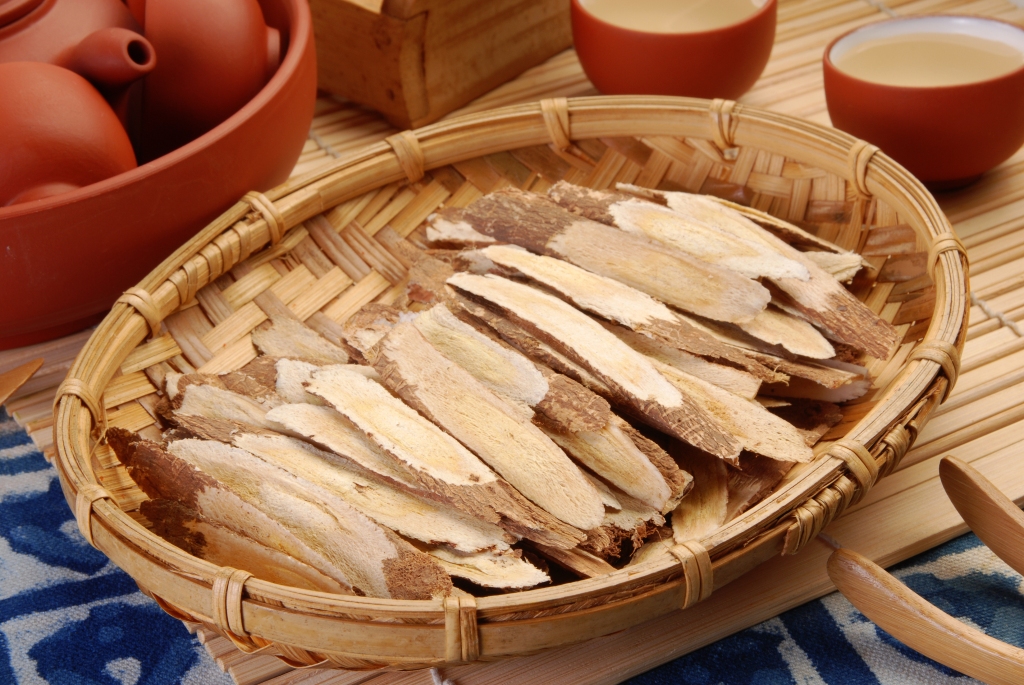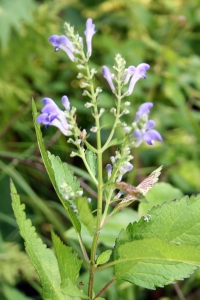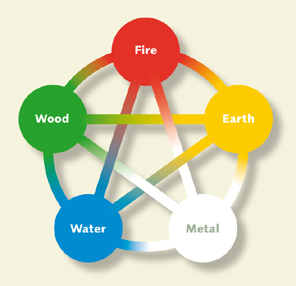
When I work with herbs, I feel like I’m on a secret mission, called by ancestral voices whispering plant names from somewhere across the veils of time and space. There is much to discover undercover with medicinal roots like Astragalus membranaceus, used since ancient times in Traditional Chinese Medicine (TCM).
Formerly introduced to Astragalus in herbal medicine school, I began buying the diagonally sliced dried root in bulk to add to nutritious bone broth soup stocks. But it has taken years of working with this herb in clinical practice to begin to grasp its full healing potential.
One client in particular obtained remarkable results from taking an Astragalus formula. She presented with diarrhea that had persisted for three months. And as is usually the case, she came to me after repeated testing and doctor visits. She had been tested for parasites, had extensive blood work, and undergone a colonoscopy. Less than 48 hours on an Astragalus formula, her diarrhea stopped for good. The cause of her debilitating condition turned out to be a round of topical corticosteroids prescribed by her doctor for an autoimmune disease (lichen sclerosis). This client had a history of exhausted adrenals since childhood. She should never have prescribed a corticosteroid with a known side effect of Cushing Syndrome (cortisol stress hormone imbalance) with diarrhea as a symptom. Astragalus stimulates pituitary-adrenal cortical activity and has been combined with drug therapies to reduce toxicity and ameliorate side effects.
After that experience, I began further research on Astragalus. Its herbal actions include immunomodulator, anti-inflammatory, antibacterial, antioxidant, cardioprotective, hepatoprotective, and adaptogenic. Astragalus is a nervous system tonic, immune tonic, and spleen qi tonic (diabetes). Tonics are herbs, that when taken consistently over time, may restore whole bodily systems. Astragalus is also used to relieve diarrhea, and weakness and fatigue, from prolonged illness. The benefits list is long and includes helping regulate blood sugar, improving stroke recovery, slowing or preventing the growth of tumors. Regular use of the root, it has been shown, can prevent kidney and liver damage caused by medication and viruses.
Considered a foundational herb in TCM, Astragalus, in addition to being a deep immune system activator, also strengthens the lung qi and the surface immune system, which is the first line of defense against pernicious influences. It also appears to enhance nonspecific and specific immunity. Astragalus is a beneficial herb for anyone who might be immune-compromised.
While many call Astragalus an immune system booster or immune stimulant, it more accurately enhances and supports immune system function, helping to prevent colds, flu, bronchitis, pneumonia, and the viral infection Coxsackie B, which is a significant cause of myocarditis.
Myocarditis is an inflammation of the heart muscle (myocardium), which is the middle layer of the heart wall. That inflammation can reduce the heart’s ability to pump and cause rapid or irregular heart rhythms (arrhythmias). According to the Mayo Clinic, an underlying inflammatory or autoimmune condition can raise your risk of myocarditis. Myocarditis is a concern with COVID-19 vaccination and in long-haul COVID. The risk of myocarditis exists from both the disease and the vaccine. There have also been case reports of myocarditis linked to flu and tetanus shots.
The COVID-19 vaccine can cause inflammation of the heart muscle (myocarditis) and inflammation of the outer heart lining (pericarditis). – Mayo Clinic
Teens and young adults are most at risk. VAERS statistics for cardiac events are high. Understaffed, overwhelmed, and backlogged, the FDA has not analyzed all the data on reports of myocarditis by their projected date of January 2022 before approving the shot for children. There is no incentive by pharmaceutical companies to ensure the safety of vaccine recipients because they assume no liability.
In June 2021, the Center for Disease Control and Prevention’s Advisory Committee on Immunization practices reported a likely link between mRNA COVID-19 vaccinations and myocarditis, particularly in people 39 and younger. A CDC spokesperson told Reuters, “It is true that since 1990 most of the myocarditis and pericarditis reports to VAERS were made after the U.S. COVID-19 vaccination program began.” Myocarditis is a condition that can weaken the heart and affect its electrical system.
TCM understands myocarditis as a disruption of the Fire Element (Heart). Vaccines disrupt the yin Water Element (Kidney/Adrenal) and insult the Kidney jing (ancestral inheritance). A depleted Water Element no longer tempers fire. Fire burns out of control and creates a vicious cycle of depletion. That is where we see the root of myocarditis. Astragalus, however, increases Water’s reserves and supports the immune system to do its job.
Used in China for at least 2,000 years, Astragalus is one of the fifty fundamental herbs used in TCM and listed as an official drug (Radix Astragali) in the modern Pharmacopoeia of the People’s Republic of China. It has become one of the primary immune tonic herbs in Western Pharmacopoeia.
Energetically sweet, warm, and nourishing, the dried root is used in soup stocks to strengthen the entire system. Astragalus tonifies the kidneys and adrenals and regulates the body’s immune system responses.
One article published in PubMed.gov says, “ It should be studied as a new drug for the treatment of sepsis.” Septic pneumonia following a cytokine storm is seen in patients presenting at the hospital with severe flu and COVID. Cytokine storms are related to infections as they progress towards sepsis. When the body loses control of cytokine production, the result is a cytokine storm.
Some cytokines make the disease worse (pro-inflammatory) and need inhibiting. Others serve to reduce inflammation and promote healing (anti-inflammatory). The intelligence of Astragalus does both, as does a normal response of a healthy immune system. Studies suggest that A. membranaceus may control pro-inflammatory cytokine expression, thus inhibiting the likelihood of a cytokine storm. Cytokines and viruses have a dynamic relationship. Pro-inflammatory cytokines on a mission to control and eradicate viruses present a threat to the virus and the host.
A cytokine storm from an excessive or uncontrolled release of pro-inflammatory cytokines results from a weakened immune system that under performs during extreme distress. Astragalus can benefit many long-haul COVID symptoms like fatigue, shortness of breath, difficulty sleeping, brain fog, heart palpitations, anxiety, and depression.
I couldn’t possibly cover all of Astragalus’ benefits. But some of its most common uses include strengthening the lungs, diabetic blood sugar control (Spleen-Pancreas), and protecting against colds and other contagious illnesses. Contraindicated during active infection with a fever, Astragalus is currently being used, however, in many Chinese formulas for active viral infection.
The most common species accepted interchangeably throughout various regions in China are as follows, A. membranaceus, A. propinquus, or A. mongholicus. These medicinal varieties are native to northern and eastern China. The part used is the root, harvested typically from four-year-old plants. Before completely dry, they can be sliced diagonally or lengthwise in the shape of a tongue depressor, which works well for stocks and decoctions, or shred cut for tea, decoction, or tincture.
One of the most important herbs used in traditional Chinese medicine preventively and in the early stages of colds and flu is beneficial and safe. Astragalus nourishes the immune system, helps protect the body from diseases like cancer and diabetes, and prevents upper respiratory infections. It may also have mild antiviral action and help to prevent colds and coronavirus. Immune system cells called macrophages increase after a simple Astragalus decoction.
DOSAGE
Tincture: (1:5 in 40%): 40-80 drops (4-8 ml), 3x/day
Extract: 250-500 mg, or (1:2) 8-12 ml 3x/day
Decoction: Add 2 – 4 tsp. dried cut/sifted root to 8 oz. water. Slowly decoct for 20-30 minutes. Let steep another ½ hour. Take up to 3 cups/day.
Tea: Boil 3-6 grams dried root in 12 oz. water. Drink 4 oz. 3x/day
Capsules: 3-6/day per manufacturer’s or practitioners instructions
Soup Stocks: 1 large slice per quart
Note: The root is also sometimes stir-fried in honey to enhance both its sweetness and tonic properties for debilitated clients
CONTRAINDICATIONS
Astragalus may interfere with drugs that are meant to suppress the immune system. Contraindicated during active infection with a fever.
DISCLAIMER
The information contained in this post is for educational purposes only. It is not intended to diagnose, treat, or prevent any disease. Some of this information has not been evaluated by the Food and Drug Administration. You should seek medical attention at the first signs of an infection and be under the care of and in communication with a licensed physician, even when you are using herbal alternatives. Be sure to disclose any herbs or supplements you may be taking.
RESOURCES
• 10 Herbs to Help you Fight the Flu & Coronavirus
• Chinese Chicken Herbal Soup for Optimal Health
• Learn more at Five Element Academy in Hidden Treasure: Kidney Essence & the Water Element, and Heal Your Heart: Nervous System Health & the Fire Element
• Plum Dragon Herbs, Huang Qi/Astragalus Root available in bulk.
Note: I review products independently and only recommend ones that I have used personally. As a Plum Dragon affiliate I may earn a commission from qualifying purchases.
You may also support my work by joining my Substack community and subscribing to Thea Summer Deer’s Blog, Herbal Medicine for a New Earth: Visioning a new paradigm of alternative health care.
REFERENCES
• Winston, D., & Maimes, S. (2007). Adaptogens: Herbs for strength, stamina, and stress relief. Rochester, VT: Healing Arts Press.
• Hoffman, D. (2003). Medical Herbalism: The Science and Practice of Herbal Medicine. Rochester, VT: Healing Arts Press.
• Myocarditis, Mayo Clinic: https://www.mayoclinic.org/diseases-conditions/myocarditis/symptoms-causes/syc-20352539
• Acute Fulminant Myocarditis Following Influenza Vaccination Requiring Extracorporeal Membrane Oxygenation, by Youn-Jung Kim, Jun-11 Bae, Seung Mok Ryoo, and Won Young Kim, published online Nov. 7th 2018, NIH.gov
• Moderna Reveals Slightly Higher Rates of Myocarditis in Young People Who Received its COVIC-19 Vaccine, by Korin Miller, published November 11, 2021 in Yahoo!news Prevention.
• Sepsis – a common cause of death from coronavirus, Deutsche Well
• Safe Antiviral Herbs for Autoimmune Disease, posted by Herbal Academy
• Huang Qi Tong Bi Decoction Attenuates Myocardial Ischemia-Referfusion Injury via HMGB1/TLR/NF-kB Pathway, PubMed.gov
• Viral Myocarditis, NIH.gov


